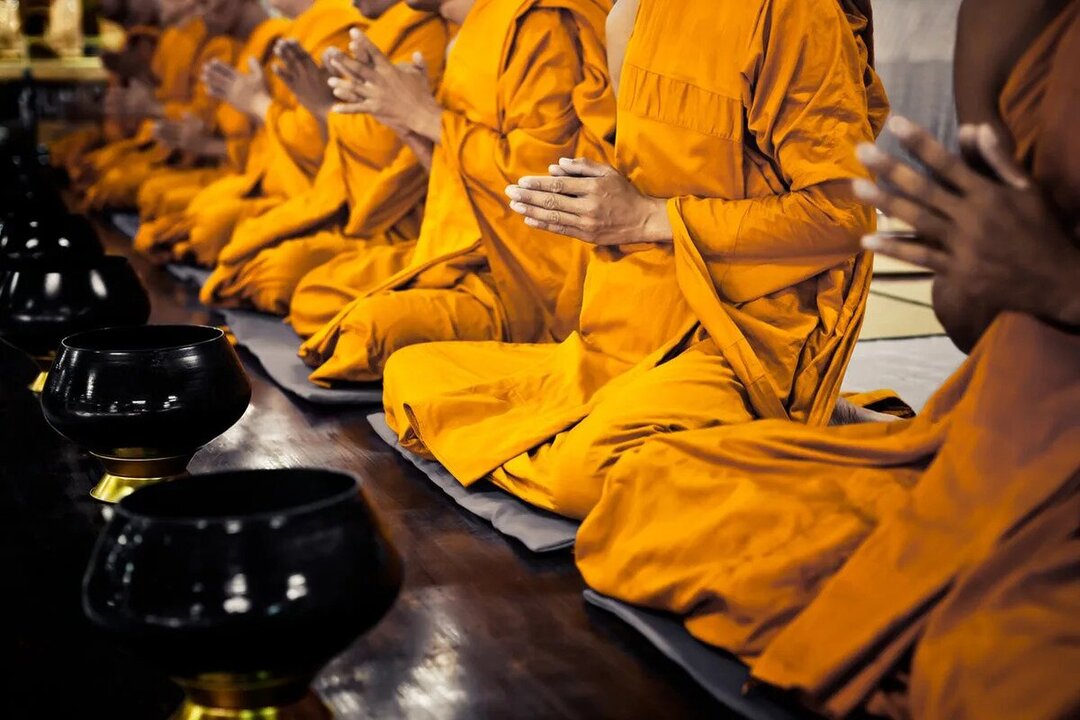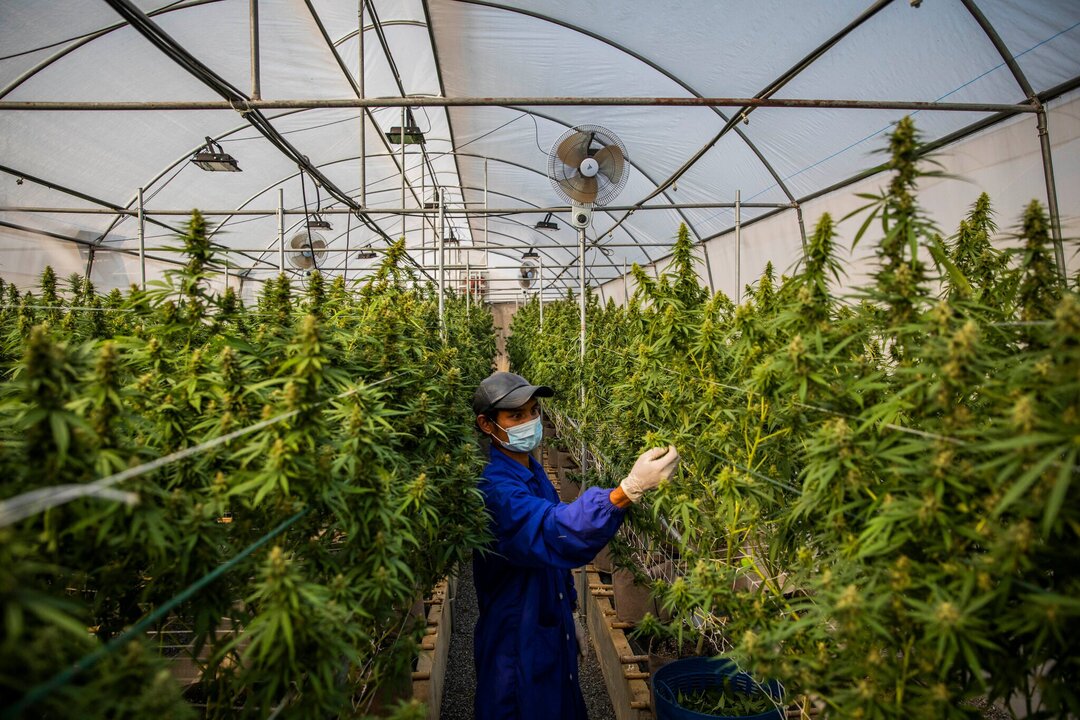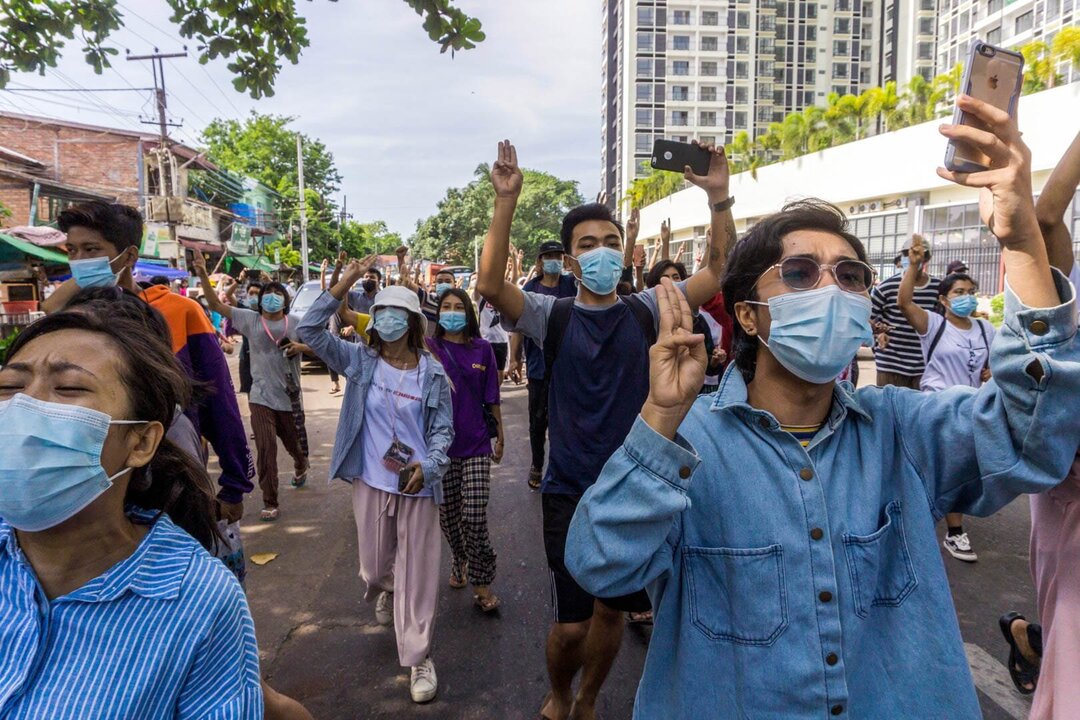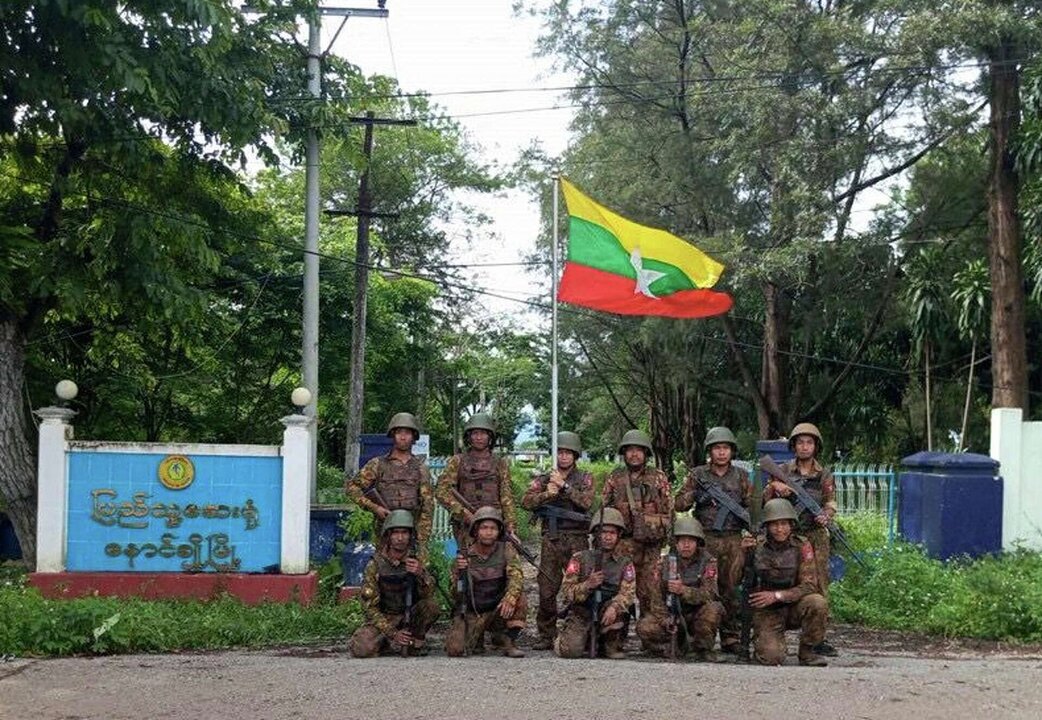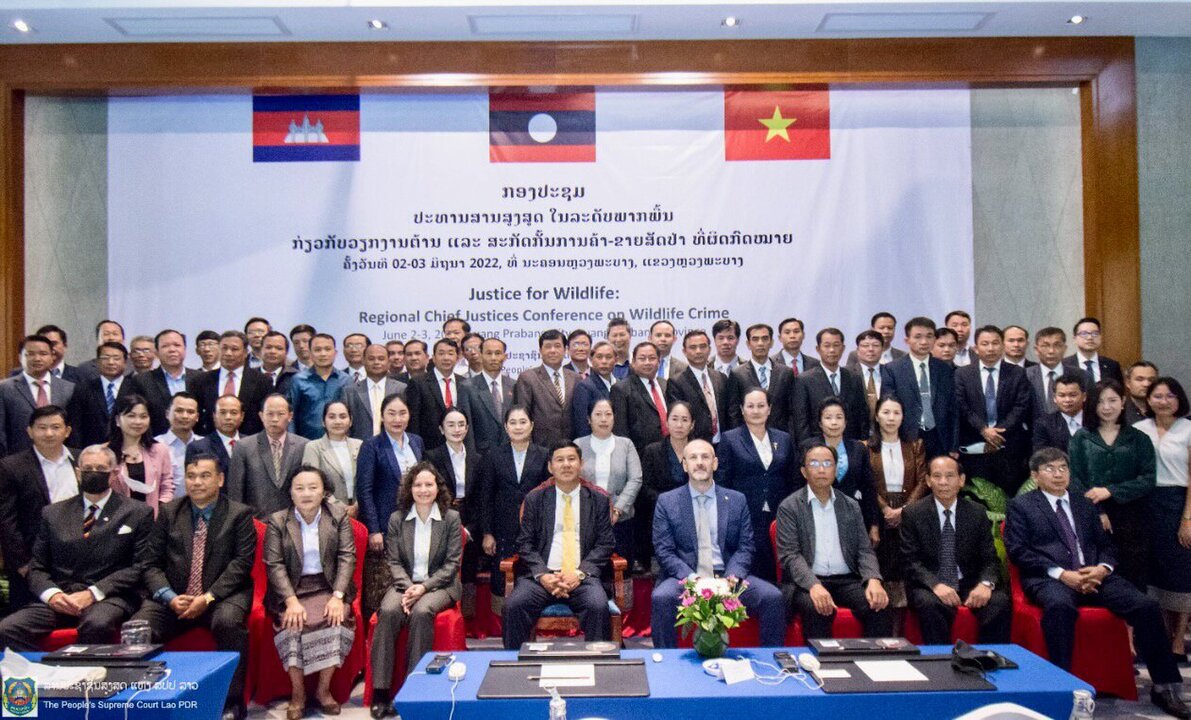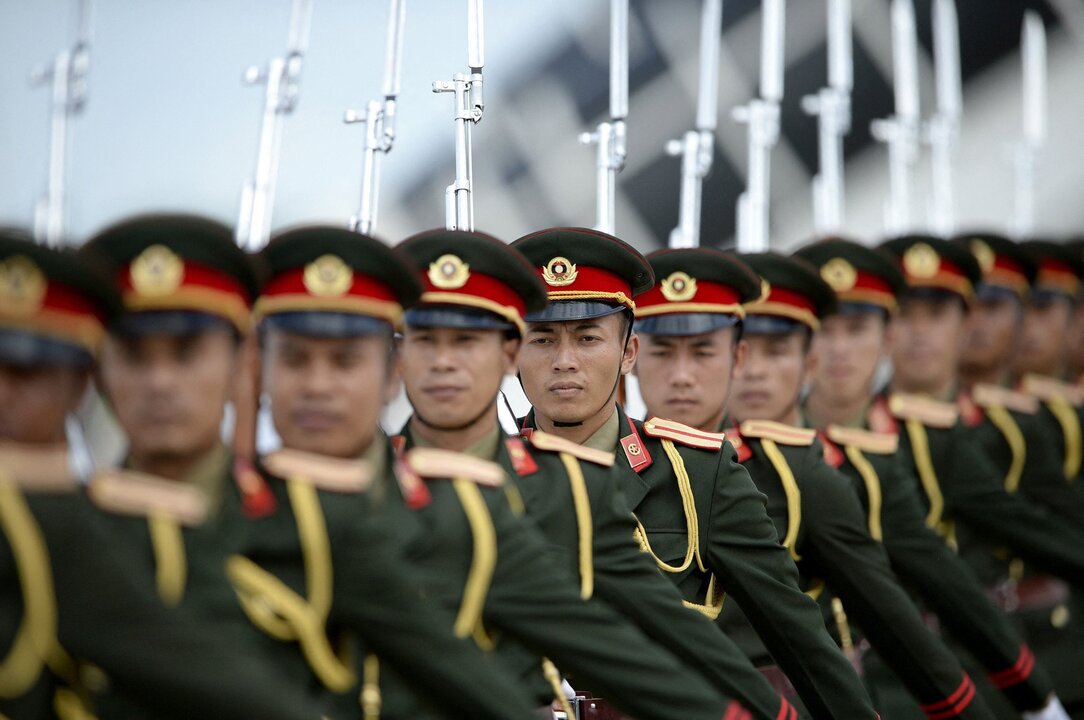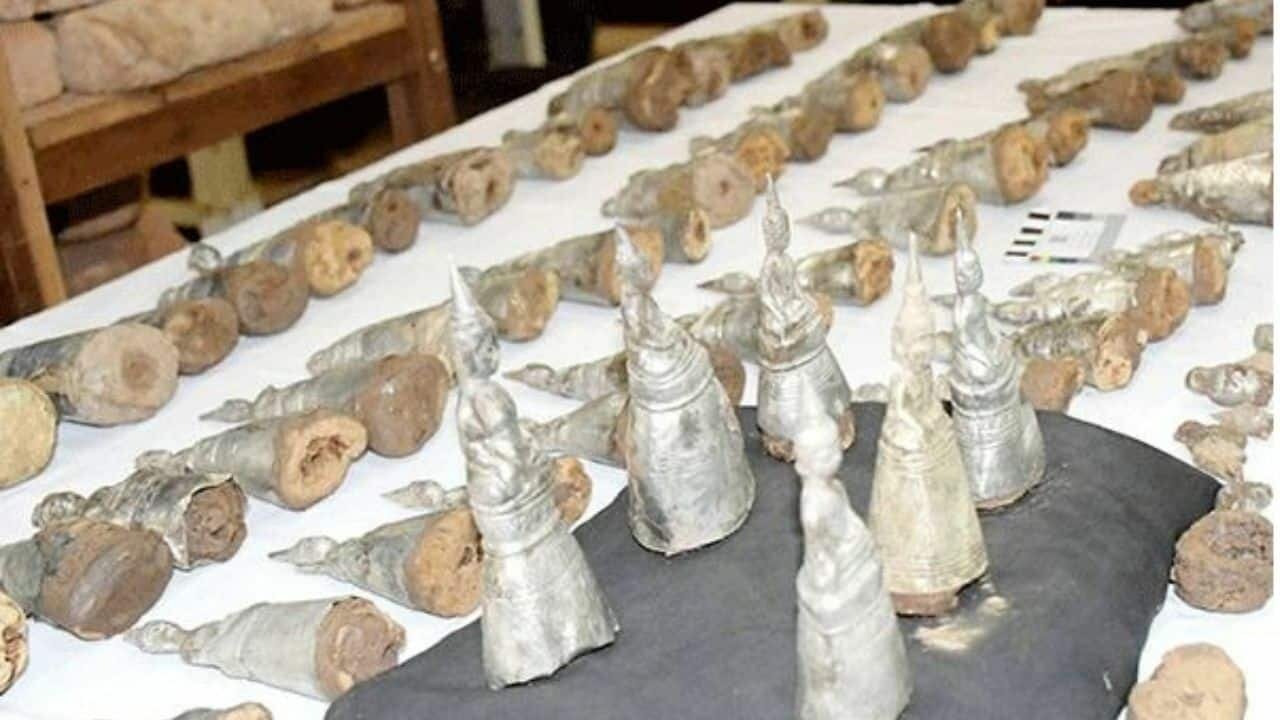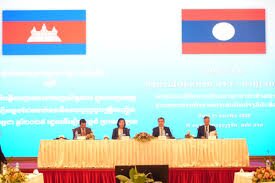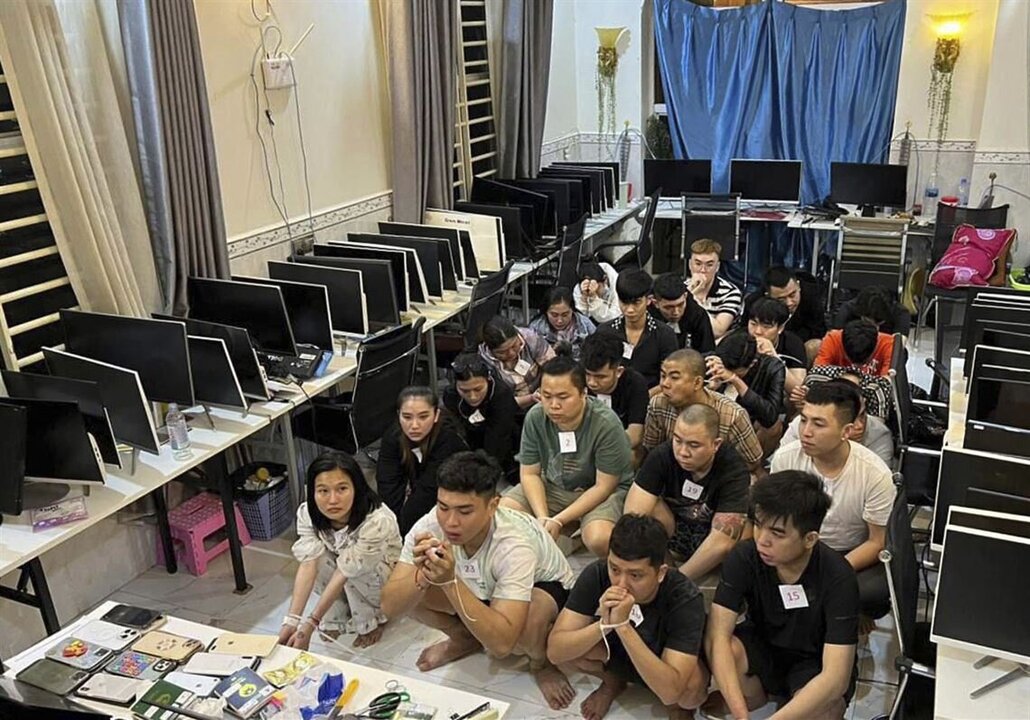Allegations of affairs, blackmail, and financial misconduct in Thailand's Buddhist monastic order prompt government response.
Thailand's Buddhist monastic order is facing a significant scandal, with multiple high-ranking monks reportedly implicated in allegations of sexual misconduct involving a single woman.
Authorities apprehended a 35-year-old woman on Tuesday, who allegedly engaged in sexual relationships with senior monks and subsequently extorted them.
She has been charged with blackmail, money laundering, and fraud.
While the total number of monks involved remains unclear, local media reports suggest that it could be as many as 15, with the misconduct spanning several years.
The investigation was initiated following the unexpected resignation of an abbot from a well-known temple in Bangkok last month, initially concerning alleged financial mismanagement within the temple.
The case escalated when the woman claimed to be pregnant with the abbot's child and requested approximately $220,000 in financial assistance.
Investigators discovered that $11.8 million had circulated through her bank accounts, leaving only $250 remaining, indicating substantial expenditure, primarily on online gambling activities.
Law enforcement officials have reported uncovering tens of thousands of images and video clips on the woman's mobile devices.
Additionally, she reportedly has several children, purportedly fathered by some of the implicated monks.
Following the scandal, multiple monks have been expelled from the monastic order.
Footage has emerged of one monk shedding his orange robes for simple white clothing and praying before his colleagues, marking his departure from the religious community.
Predominantly, the people of Thailand adhere to Theravada Buddhism, which enforces a strict celibacy code for monks, prohibiting any physical contact with women and dictating a lifestyle characterized by simplicity and minimal worldly possessions.
However, scandals involving monks have surfaced regularly, encompassing abuses of power, sexual misdeeds, the sale of questionable religious relics, and significant embezzlement of temple funds.
These incidents have eroded the credibility of the monastic order, which is expected to be a moral compass within Thai society.
Consequently, there is evidence suggesting a decline in interest among young Thais in pursuing ordination as monks.
This trend is contributing to a growing number of vacant temples, particularly in rural areas, depriving communities of a vital spiritual resource.
The situation has prompted the National Office of Buddhism, the government entity overseeing Buddhist affairs, to prepare legislative amendments aimed at criminalizing sexual relationships between laypeople and monks.
The effectiveness of these proposed changes in restoring confidence in Buddhism among the Thai populace remains to be seen.





